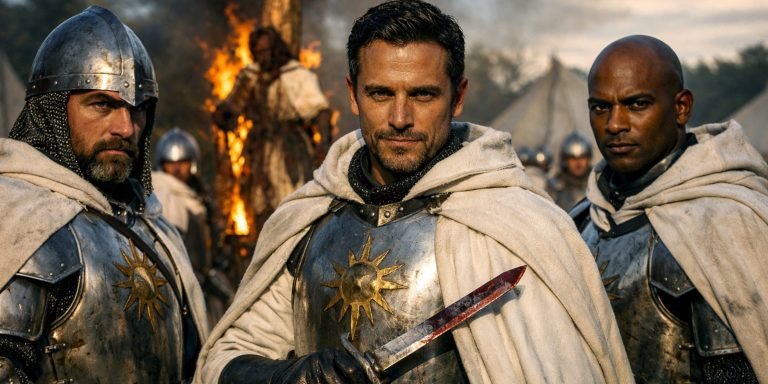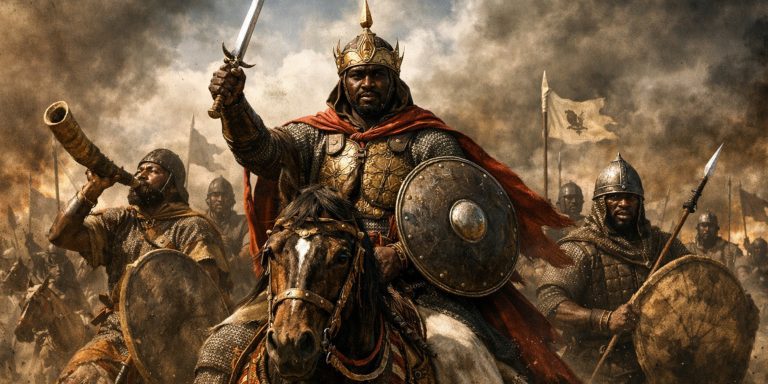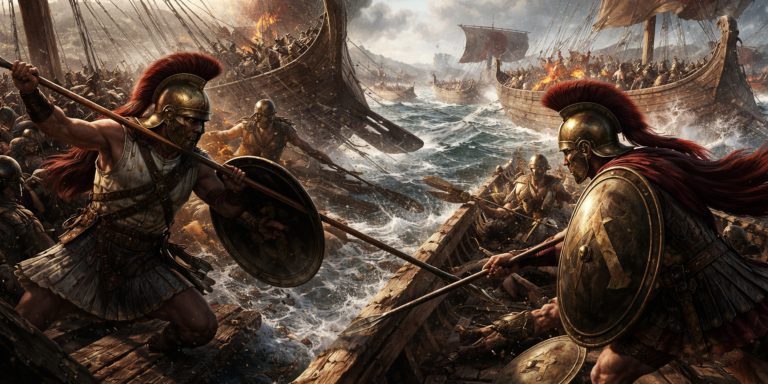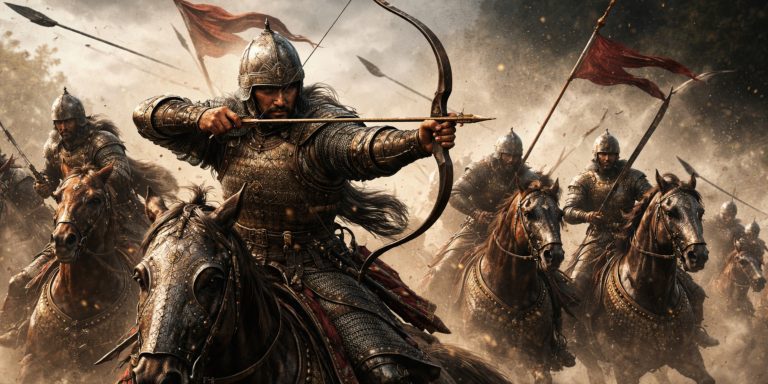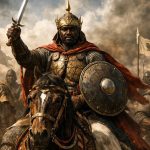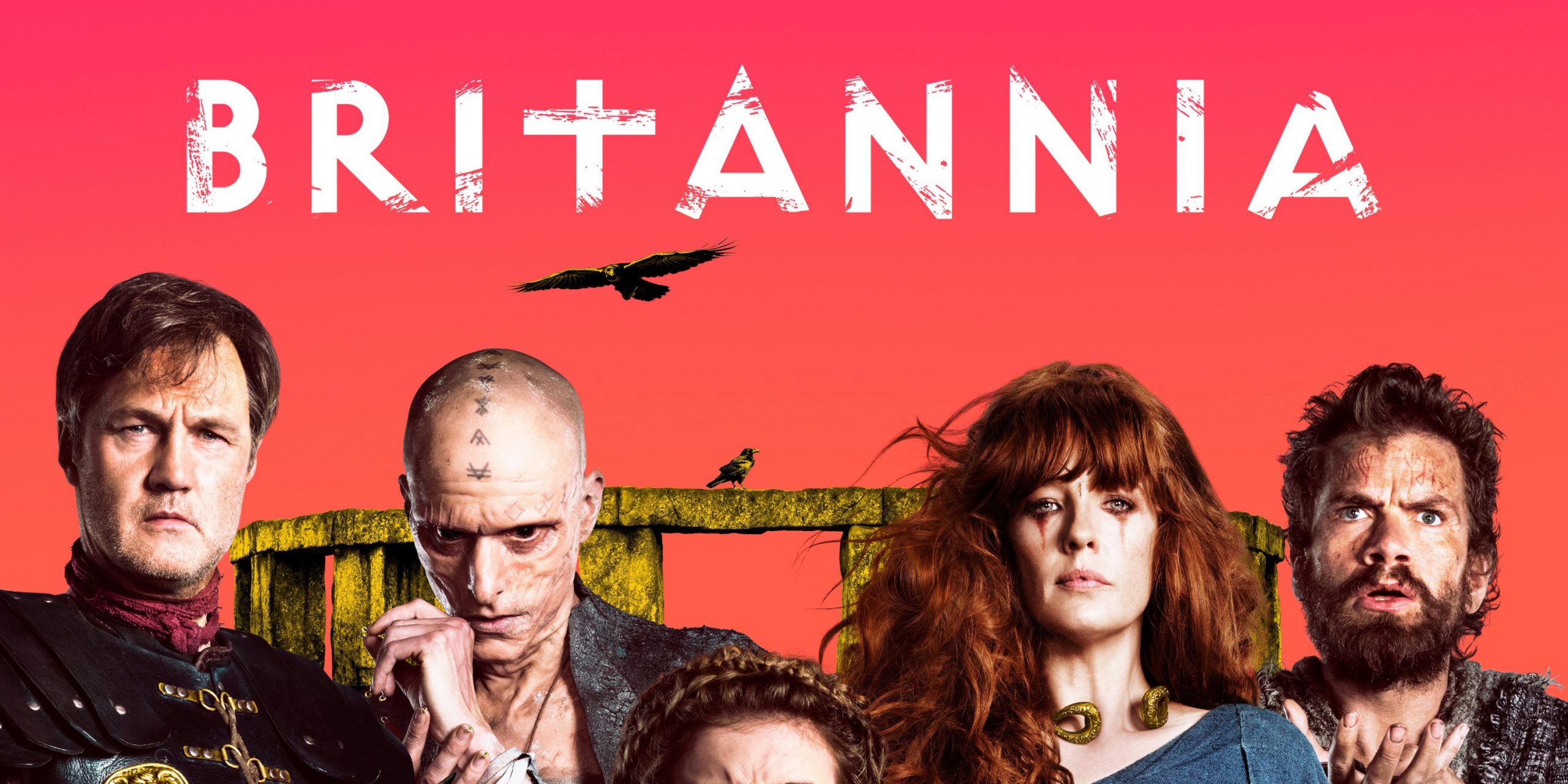
When Britannia first aired, it looked like another big-budget attempt to fill the void left by Game of Thrones. But instead of political scheming and dragons, we got druids, Roman legions, and a lot of hallucinogenic fog. It was history seen through the eyes of someone who’d read Tacitus, watched Monty Python and the Holy Grail, and then microdosed before writing the script.
The show was set in 43 AD, around the Roman invasion of Britain, yet from the opening credits alone, set to Donovan’s “Hurdy Gurdy Man”, you could tell this wasn’t a history lesson. It was like Asterix rewritten by Dennis Potter and directed by someone who’d spent too long in Glastonbury’s healing field.
A Trip Through Pagan Britain
Britannia blended fact and fantasy so aggressively that it stopped caring where one ended and the other began. The Romans really did invade under Emperor Claudius, and Celtic tribes did worship gods tied to the land, but the show leaned into mysticism as if it were the real power running the island.
The druids were portrayed less as scholarly priests and more as drugged-up intermediaries between the spirit world and the political one. They spoke in riddles, wore animal pelts, and performed unsettling rituals that made even the Romans seem level-headed. Veran, the lead druid played by Mackenzie Crook, was one of television’s most bizarre creations: part prophet, part parasite, and somehow still magnetic.
Romans, Rebels, and Absolute Chaos
If you came for military precision or Roman discipline, you were probably disappointed. General Aulus Plautius, played by David Morrissey, acted less like a historical commander and more like a man on a spiritual gap year. His Roman army was constantly undermined by Celtic trickery, uncooperative allies, and the sheer weirdness of the land they were trying to conquer.
Meanwhile, the native tribes were in constant turmoil, with rival leaders backstabbing and making uneasy alliances, all while haunted by gods and destiny. The politics were messy, the battles were muddy, and the dialogue was often poetic gibberish that somehow made sense in context.
The Madness Worked
What made Britannia special, though, was that its madness was deliberate. It wasn’t trying to be historically accurate in the same way as Rome or Barbarians. It wanted to capture the psychological clash between civilised empire and untamed belief. The Romans brought roads and order, but the Celts lived in a world of spirits, symbols, and visions. The show turned that conflict into something surreal and hypnotic.
You could argue that it was too much, too wild, too inconsistent, but it was never dull. When most period dramas aim for grim realism, Britannia went for ecstatic confusion. It was full of moments where you weren’t sure if you were watching a historical drama, a dark comedy, or a pagan fever dream.
Why It Deserved More Attention
Britannia never really got the recognition it deserved. It sat awkwardly between genres, too odd for mainstream audiences and too irreverent for historical purists. But that’s also what made it stand out. It was a show that asked, “What if ancient Britain actually was weird?” and then committed to that idea with total conviction.
The visuals were stunning, the performances committed, and the writing so unpredictable that even when it faltered, you couldn’t look away. It was part historical epic, part hallucinatory satire, and part existential theatre about the end of one world and the birth of another.
The Seven Swords Takeaway
Britannia might not have rewritten history, but it reimagined it in a way few shows dare to. It took the Roman invasion and turned it into a psychedelic morality play about faith, control, and the power of belief. Watching it felt like stumbling into a bonfire ritual where everyone was slightly too enthusiastic.
It wasn’t clean, it wasn’t accurate, but it was unforgettable. In an era full of tidy prestige dramas, Britannia reminded us that sometimes it’s more fun when history gets a little bit high.
Watch the trailer:

